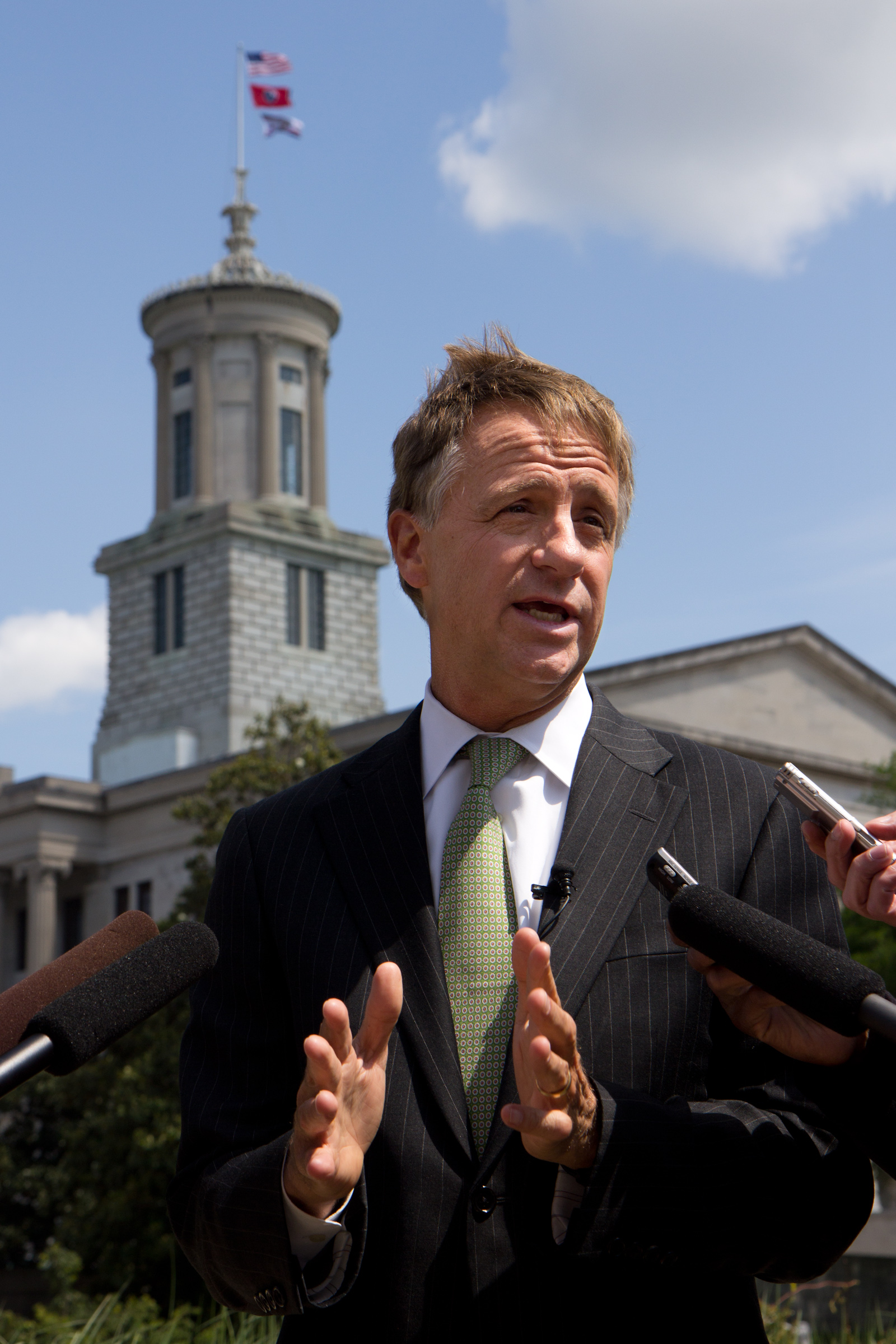CLOSER TO HOME
The Tennessee Regulatory Authority will take public comments next week on Tennessee American Water's requested 24.9 percent rate increase. TRA directors will hear local comments about the proposed $10.6 million rate hike -- the biggest ever for the water utility -- from 4 to 7 p.m. Sept. 20 at the Hamilton County Courthouse commission room.
NASHVILLE -- After the General Assembly approved Gov. Bill Haslam's proposed overhaul of the Tennessee Regulatory Authority last spring, Knoxville businessman Earl R. Taylor thought he might be a good fit as one of the agency's five new part-time directors.
But Haslam, a former Knoxville mayor who knew Taylor, and the governor's top staffers instead saw Taylor in a different role at the TRA, which sets rates and service standards for privately owned utilities.
The governor decided Taylor, who had worked as an attorney and television affiliate executive before becoming a Panera Bread restaurant franchisee with multistate operations, was the best choice for the reconfigured authority's powerful new executive director position.
So on July 31, Haslam; Lt. Gov. Ron Ramsey, who is Senate speaker; and House Speaker Beth Harwell named Taylor as executive director. He is in effect the TRA's chief operating officer.
In a recent interview, Taylor said he's enjoying his new role and has discovered "a very good group of people working here, very capable, dedicated smart folks. We're blessed to have a lot of great people here at the TRA."
The "learning curve's pretty steep, but we're getting there," he said.
Up until the new law took effect July 1, the TRA had four full-time directors who ran the agency. They also set policy and ruled in rate cases involving utilities such as Tennessee American Water in Chattanooga.
Now, the part-time directors' role is largely setting policy and deciding rate cases.
During the interview, Taylor explained how his interest in one of the part-time director roles turned into the executive director's post.
"I was interested in one of the part-time positions," Taylor said. "That's what started the process. And then when I started interviewing, it just kind of evolved from that, that this might be a good fit."
Noting he has "a little bit of legal background and some executive experience running an organization," Taylor said, "I guess it felt right for me, and apparently it did for the governor, lieutenant governor and speaker."
Haslam agreed, saying Taylor "originally expressed interest in being one of the directors. And then when he came in to interview with us, the more we talked, the more that several of us kind of independently of each other said he would be a good executive director."
The appointment took agency officials, utility attorneys and news organizations by surprise. Taylor's name wasn't on the list of 18 applicants released earlier by the administration to the Times Free Press.
"I don't think there's anything wrong with it," Haslam said. "When I was elected ... we had a lot of people apply for positions, some of whom I chose. A lot of people who are agency heads and commissioners didn't apply. I went out and found them and got them to do it."
That doesn't mean "there's anything wrong with the process," the governor said. "I think it kind of works to open it up: here's the position, see who applies. But our job is always to find the very best person that we can."
Haslam's hope in overhauling the TRA was saving money and having the independent agency conduct one of the "top to bottom" reviews that are a hallmark of his goal to make state government "efficient and effective."
The governor and top administration officials argued that changing from a full-time, four-member board to the five-member, part-time board with the executive director would save about $300,000 in salary and benefits.
Critics contended changes would leave the part-time directors largely at the mercy of the executive director.
Taylor already is working on the top-to-bottom review of the agency, which has 69 positions and about a $7.8 million budget.
He recently abolished the positions of senior policy advisers for each full-time director. In practical terms, only one adviser lost a job, according to TRA insiders. That adviser worked for Sarah Kyle when she was a full-time director. She now is one of the part-time directors.
An adviser for TRA Chairman Kenneth Hill, the only other full-time director now on the part-time board, left before Taylor's arrival to take another position in the agency.
In another change described by agency insiders, directors no longer have their own administrative assistants. Now two administrative assistants will serve all five directors.
TRA spokesman Greg Mitchell said neither Taylor nor Hill was at the agency Friday afternoon and he was unable to provide details.
Haslam said Taylor's role is "to carry out the mission of the authority, to make sure we're regulating those people we should. If in the process they can save money, then obviously we want them to do that, just like we do at any other agency."
He noted any savings would revert to the agency, which is funded by utilities' fees, and not to the state's general fund.
Contact staff writer Andy Sher at asher@timesfreepress.com or 615-255-0550.

